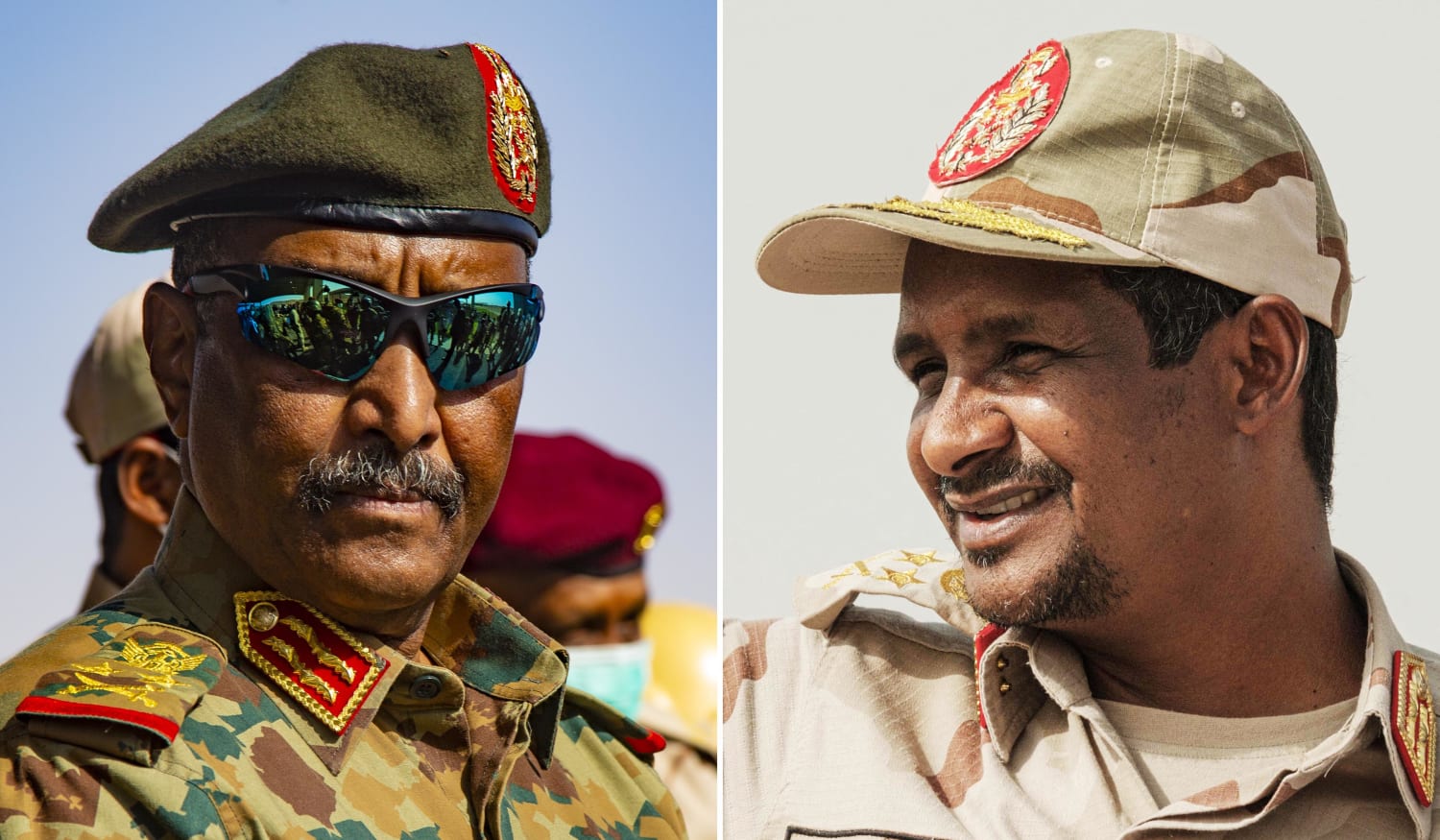On June 2, five aid workers were killed in Sudan in an attack on humanitarian aid convoy, according to the
United Nations. This attack took place near the town of El Koma in North Darfur province, the region controlled by Rapid Support Forces
(RSF). Several trucks were burned and humanitarian was aid was damaged in this
attack, according to the UNICEF and World Food Programme. This incident is the
latest addition to the unending cycle of violence that has gripped Sudan since
2023.
Multiple conflicts have ravaged the world in the past
three years. The Russia-Ukraine war has completed three years and has entered
the fourth year. The Israel-Hamas war is set to complete two years in four
months’ time with no end in sight. In between India and Pakistan had a brief
spell of hostility for four days in May. All these conflicts have dominated the
world map and continue to make headlines and rightly so.
However, there is another conflict that recently
completed two years but has almost been wiped out from the list of contemporary
wars. The civil war in Sudan which started on April 15, 2023 and is still going
on has somehow been relegated to the status of a relatively low-profile and negligible
skirmish.
It is pertinent to consider the status of the civil
war in Sudan which has been going on for more than two years. The civil war
that started in 2023 has its roots in 2019. In 2019 the Sudanese Armed Forces
(SAF) led by General Abdel Fattah al-Burhan and paramilitary group Rapid
Security Forces (RSF) led by Mohamed Hamdan Dagalo (known as Hemedti) overthrew long-ruling president Omar al-Bashir. Al-Burhan and Hemedti shared
power following al-Bashir’s ouster. The two military officers appointed
civilian Abdalla Hamdok as the prime minister. However the SAF and the RSF
removed Hamdok in a coup in 2021. In April 2023, as a result of power struggle
between the SAF and the RSF, fighting broke out between the two branches of
military which threw Sudan into a civil war.
The Sudan conflict needs to be understood from three
perspectives: humanitarian crisis, intervention by external powers and the spillover
effect of the Sudanese civil war into neighbouring countries.
Humanitarian Crisis
Since the start of the civil war, humanitarian crisis
in Sudan has become very grave. Sudan has seen one of the highest displacement
rates in the world since 2023. In the last two years, more than four million people have fled Sudan. United Nations High
Commissioner for Refugees (UNHCR) has termed this displacement as a devastating
milestone. Of these four million, nearly 800,000 are internally displaced
within Sudan. Further the situation in Sudan is becoming more complicated due
to outbreak of diseases. Cholera outbreak is rapidly sweeping through Sudan with more than 1000
cases reported daily. As the sanitation system is destroyed and access to clean
water is limited, Sudanese people are forced to rely on contaminated sources
which cause spread of water-borne diseases. The spread is also accelerated due
to thousands of Sudanese who are returning after initially fleeing the country
two years back. There is possibility of cholera spreading further particularly
among the heavily crowded displacement centres where isolation is difficult.
Also with around 80% hospitals out of service, treatment of patients and
controlling the outbreak is difficult.
Role of External Powers
While, in general countries of North and Central
Africa have provided a lucrative ground for external powers to push forward
their strategic footprint, Sudan is no exception. Amid the crisis, countries
like the UAE, Egypt and Türkiye have been taking steps to forward their own
interests in Sudan. Sudan has provided a fertile ground for rivalry between the
UAE, Egypt and Türkiye. Support to rival factions has facilitated the Middle
Eastern powers to push forward their rivalry with other nations. The UAE and
Egypt stand opposite each other in Sudan. The UAE supports the RSF and
Egypt supports SAF. Similarly the civil war in Sudan has widened the rift
between the UAE and Türkiye as the two countries support rival factions.
Türkiye, like Egypt, supports the SAF which is causing friction with the UAE. The UAE’s support to
the RSF has led to deteriorating ties with Sudan. Only recently, when the SAF gained
advantage over the RSF in some parts of Sudan, that Abu Dhabi is considering normalizing ties with the SAF-led Khartoum.
Spillover Effect
The prolonged crisis in Sudan is causing a spillover
into the neighbouring countries. In particular Chad, Egypt and South Sudan have
borne the brunt of the civil war in Sudan which is affecting the economies of
these countries. Chad, which hosts about 850,000 Sudanese refugees has seen a strain on its resources such as firewood and water. Selling of smuggled goods
is also on the rise in Chad. In South Sudan, the pouring in of refugees from
Sudan has aggravated the problem of famine. South Sudan has also witnessed
violence in the refugee camps. Egypt, for its part, has faced challenges in
making available adequate medical facilities to the refugees. Already Africa is grappling with
several conflicts, notably in Ethiopia and South Sudan. Continuing civil war in
Sudan is only adding to the regional instability and security concerns.
Despite its continuing deteriorating security
situation which affects regional stability in North Africa and its
neighbourhood, Sudan has failed to attract world’s attention. It is necessary
that major powers of the world as well as multilateral institutions make
concerted efforts towards ending the civil war in Sudan which would not only
stabilize the North African region but also address the humanitarian crisis
that the citizens of Sudan are facing since the past more than two years.



